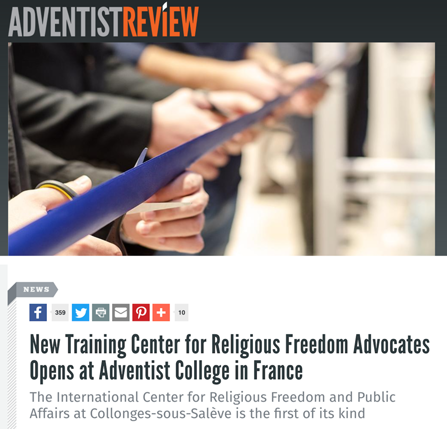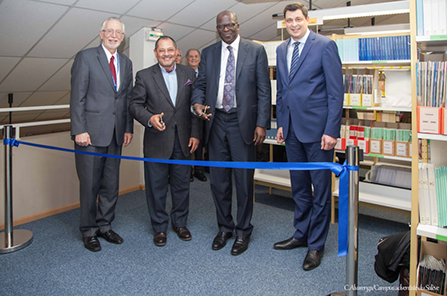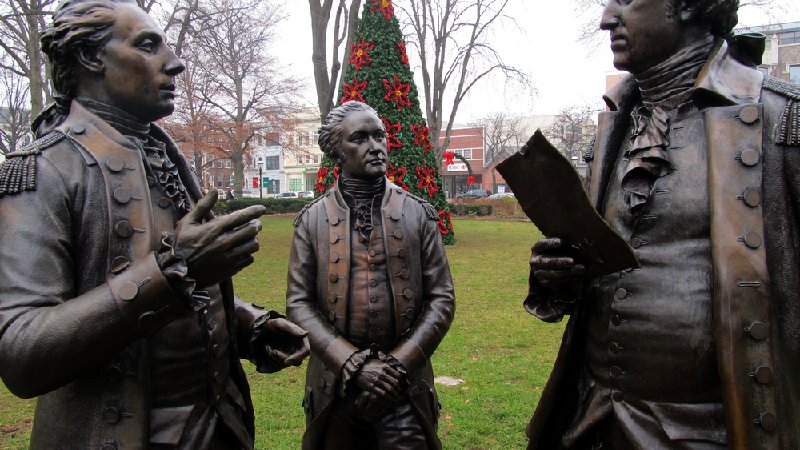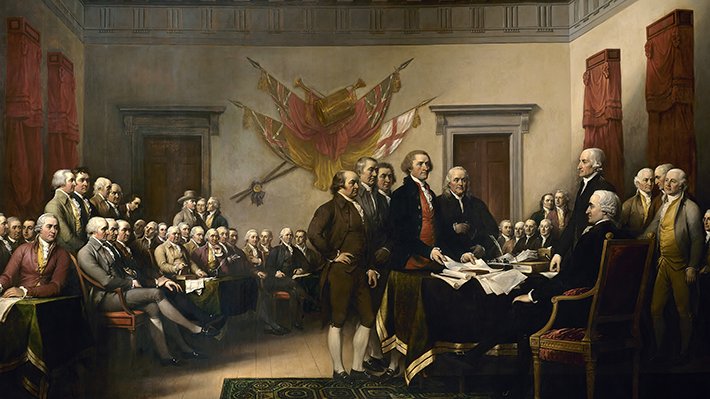
-
HOME
-
WHAT IS STANDOur Mission Our Values Our Help Contact
-
WHAT WE FIGHT FORReligious Freedom Religious Literacy Equality & Human Rights Inclusion & Respect Free Speech Responsible Journalism Corporate Accountability
-
RESOURCESExpert Studies Landmark Decisions White Papers FAQs David Miscavige Religious Freedom Resource Center Freedom of Religion & Human Rights Topic Index Priest-Penitent Privilege Islamophobia
-
HATE MONITORBiased Media Propagandists Hatemongers False Experts Hate Monitor Blog
-
NEWSROOMNews Media Watch Videos Blog
-
TAKE ACTIONCombat Hate & Discrimination Champion Freedom of Religion Demand Accountability
Talk Versus Action
Dr. Ganoune Diop, director of public affairs and religious freedom for the worldwide Seventh-day Adventist Church, recently gave a beautiful keynote address at the opening of a religious freedom training center in France.

“It is important to recognize religious freedom as a ‘compound freedom,’” he said. “Religious freedom presupposes many other freedoms: the freedom of thought, freedom of conscience, freedom of expression, freedom of assembly, and freedom to choose or to change one’s religion, philosophy or belief. All human rights are interdependent and indivisible, and religious liberty is foundational, undergirding all other freedoms.”
In the U.S. we live in a society that lately seems to revel in the protection free speech affords by exercising it as an obscene luxury, with people flaunting their right to say bigoted, vile and inflammatory things about the viewpoints or beliefs of others, however biased, unfair or hateful. Thankfully, that same freedom also protects each individual’s ability to practice their own religion without fear of persecution. And while there are religiously motivated hate crimes, inflammatory speech is more often as far as the hate goes.
If history has taught us anything, it’s that basic human rights must be constantly fought for and continuously taught to each new generation as well as supported by any means possible.
Because hate speech has become an unfortunately frequent part of the cultural dialogue, and because actual violence is a rare occurrence for most Americans, one can easily become complacent about human rights abuses or religious intolerance in other parts of the world—“that’s just the way things are.” But if history has taught us anything, it’s that basic human rights must be constantly fought for and continuously taught to each new generation as well as supported by any means possible.

True believers of all faiths are being persecuted, violated and even murdered around the world by groups perhaps operating in the name of faith but who are utterly without true faith of any kind. The world’s great religions have in their fundamental tenets kindness and compassion and service to one’s fellow man. The right to practice one’s own religion freely is thus not only a fundamental human right, but it is, as Dr. Diop points out, a foundational right that creates the kind of safe cultural space needed for all other human rights to exist in a meaningful way.
It is faith in, and an awareness of, something greater than ourselves that separates humankind from all other living things and elevates us in all the ways that make life worth living.
I applaud the effort of any group that stands up for religious freedom and the right of each individual to commune with the divine in the way they find most meaningful. It is a beautiful fact of life that there are those who care enough about the rights of others to contribute time and resources to making the world safe for all belief.









